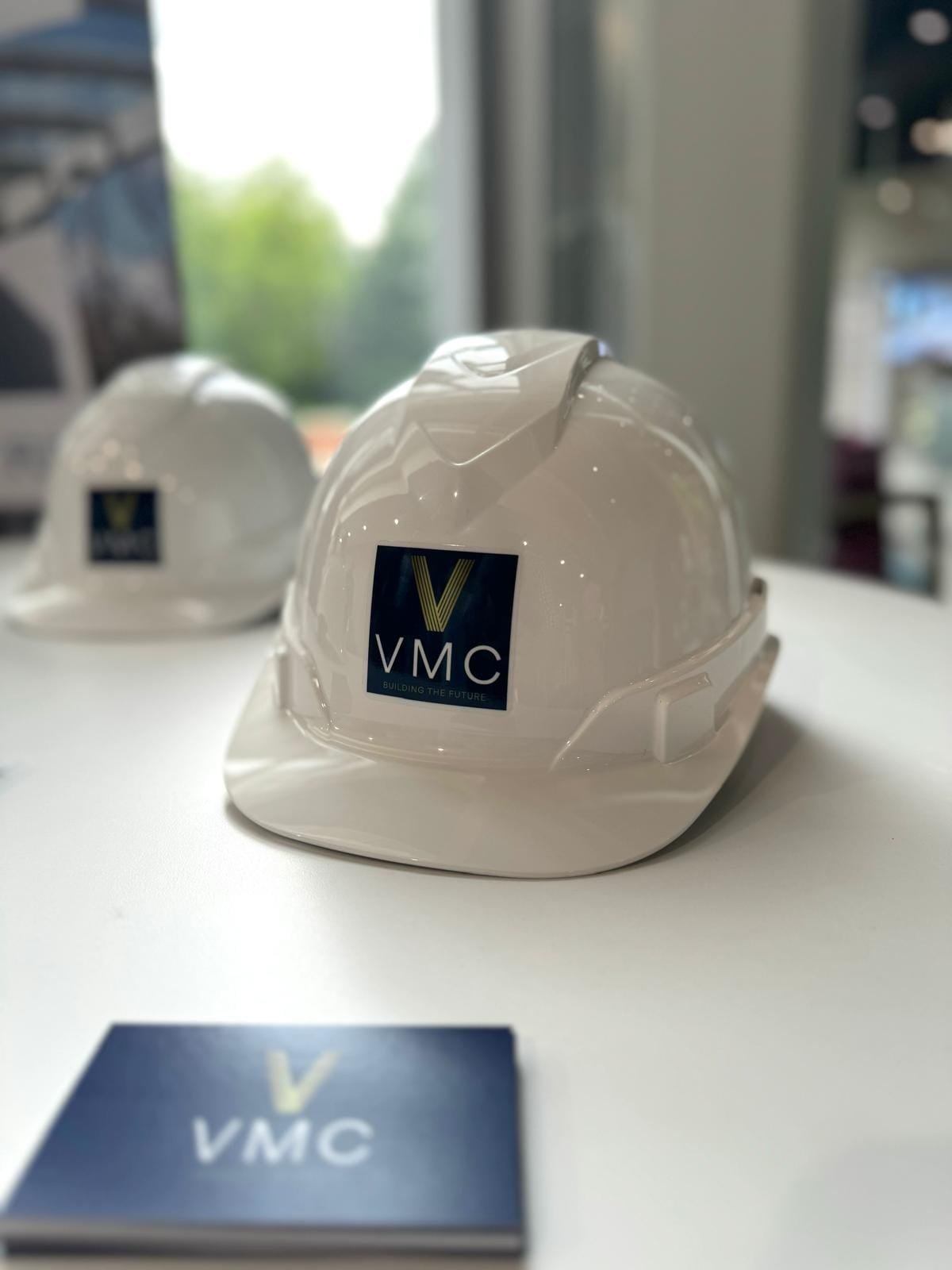As urbanization increases and cities become more crowded, the demand for acoustic insulation in modern buildings is growing. Whether in residential apartments, office spaces, hospitals, or entertainment venues, effective soundproofing materials play a crucial role in ensuring comfort, privacy, and productivity. Without proper acoustic insulation, noise pollution can negatively impact mental health, concentration, and even the structural integrity of buildings.
At VMC Group, we specialize in integrating high-performance acoustic solutions into our construction projects to enhance building quality and occupant well-being. In this article, we will explore why acoustic insulation is essential, the best materials available, and how it benefits modern architecture.
What is Acoustic Insulation?
Acoustic insulation refers to the use of materials and design strategies to control and reduce noise transmission within a building. This can include:
- Sound absorption: Materials that absorb sound waves to reduce echo and reverberation.
- Sound blocking: Barriers that prevent sound from traveling between spaces.
- Vibration isolation: Techniques that minimize noise caused by mechanical vibrations.
Effective sound insulation enhances comfort, boosts productivity, and improves the overall functionality of different types of buildings.
Why is Acoustic Insulation Important?
Modern buildings are designed with multiple functionalities in mind. From open-plan offices to multi-family residences, noise control is crucial for maintaining a comfortable and peaceful environment. Here’s why acoustic insulation is a necessity in contemporary construction:
1. Enhancing Workplace Productivity
Excessive noise in office environments leads to distractions and reduced employee performance. Studies show that soundproofed workspaces improve focus, communication, and overall job satisfaction. Acoustic insulation in walls, ceilings, and flooring minimizes external noise and enhances speech clarity.
2. Improving Residential Comfort
In apartment buildings and homes, unwanted noise from neighbors, traffic, or household activities can be disruptive. Proper insulation ensures better privacy and a quieter living environment, contributing to better sleep quality and reduced stress levels.
3. Enhancing Healthcare and Educational Spaces
Hospitals and schools require strict noise control. In hospitals, excessive noise can affect patient recovery and staff efficiency. In classrooms, poor acoustics can lead to decreased comprehension and student engagement. Acoustic treatments in walls, ceilings, and floors are essential for maintaining a productive atmosphere in these environments.
4. Compliance with Building Regulations
Many countries have implemented building codes that mandate minimum acoustic performance standards. Whether constructing a commercial high-rise or a residential complex, ensuring compliance with these regulations avoids legal issues and improves overall building value.
Types of Acoustic Insulation Materials
Several advanced materials are used to enhance soundproofing in buildings. Each material has unique properties that make it suitable for specific applications. Here are the top acoustic insulation materials:
1. Acoustic Foam Panels
What It Is: Acoustic foam panels are lightweight materials designed to absorb sound waves and reduce echoes. They are often used in recording studios, theaters, and office spaces.
Key Benefits:
- Improves speech clarity and sound quality.
- Reduces noise reflections and reverberation.
- Easy to install on walls and ceilings.
2. Mass-Loaded Vinyl (MLV)
What It Is: MLV is a flexible, high-density material used to block sound transmission through walls, ceilings, and floors.
Key Benefits:
- Highly effective in reducing airborne noise.
- Thin and lightweight compared to traditional sound barriers.
- Can be installed behind drywall or under flooring.
3. Acoustic Fiberglass Insulation
What It Is: Fiberglass insulation is commonly used for both thermal and acoustic insulation. It is made from fine glass fibers that trap sound waves.
Key Benefits:
- Reduces both airborne and impact noise.
- Fire-resistant and moisture-resistant.
- Suitable for walls, ceilings, and HVAC ducts.
4. Resilient Channels
What It Is: Resilient channels are metal strips that isolate drywall from the structure, preventing sound vibrations from passing through walls and ceilings.
Key Benefits:
- Reduces structural noise transmission.
- Enhances the performance of drywall insulation.
- Cost-effective and easy to install.
5. Green Glue Soundproofing Compound
What It Is: Green Glue is a specialized compound applied between layers of drywall to absorb and dissipate sound vibrations.
Key Benefits:
- Reduces low-frequency noise effectively.
- Easy application for DIY or professional installations.
- Works well in walls, floors, and ceilings.
How Acoustic Insulation is Applied in Different Building Types
1. Residential Buildings
Homes and apartments require wall insulation, soundproof doors, and vibration-dampening flooring to minimize noise from neighbors, appliances, and outdoor environments.
2. Commercial Spaces
Office buildings benefit from acoustic partitions, ceiling panels, and noise-absorbing furniture to create a quieter work environment.
3. Educational Facilities
Schools and universities require soundproofing solutions such as fiberglass ceiling tiles, acoustic drywall, and insulated windows to enhance concentration and communication.
4. Healthcare Facilities
Hospitals and clinics must minimize noise using high-density insulation, resilient walls, and soundproof HVAC systems to improve patient comfort and staff efficiency.
5. Entertainment Venues
Theaters, auditoriums, and concert halls rely on acoustic panels, bass traps, and specialized flooring to provide optimal sound experiences.
How VMC Group Ensures Superior Acoustic Insulation
At VMC Group, we prioritize acoustic comfort in all our construction projects by:
- Using high-performance soundproofing materials tailored to each building’s needs.
- Employing expert design strategies to minimize noise pollution.
- Ensuring compliance with acoustic building codes and industry standards.
- Incorporating eco-friendly insulation solutions for sustainable soundproofing.
Conclusion: The Role of Acoustic Insulation in Modern Construction
As cities become denser and noise pollution increases, acoustic insulation is essential in modern construction. Whether for residential, commercial, healthcare, or entertainment buildings, investing in high-quality soundproofing materials enhances comfort, privacy, and efficiency.
Read: The Rise of Smart Materials in the Construction Industry
At VMC Group, we implement advanced acoustic solutions to create quiet, productive, and sustainable spaces. If you’re looking to integrate superior sound insulation into your next project, contact VMC Group today!



